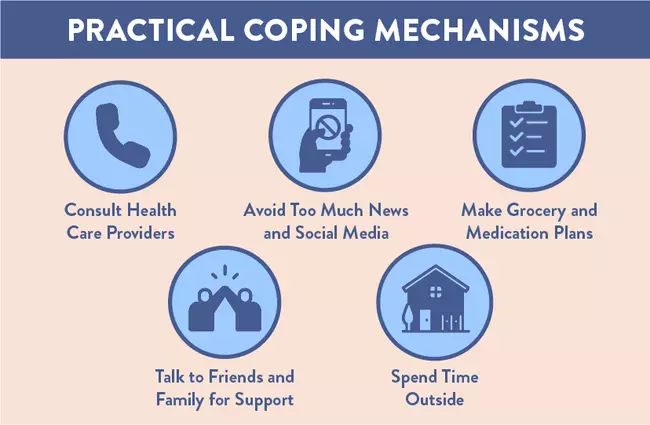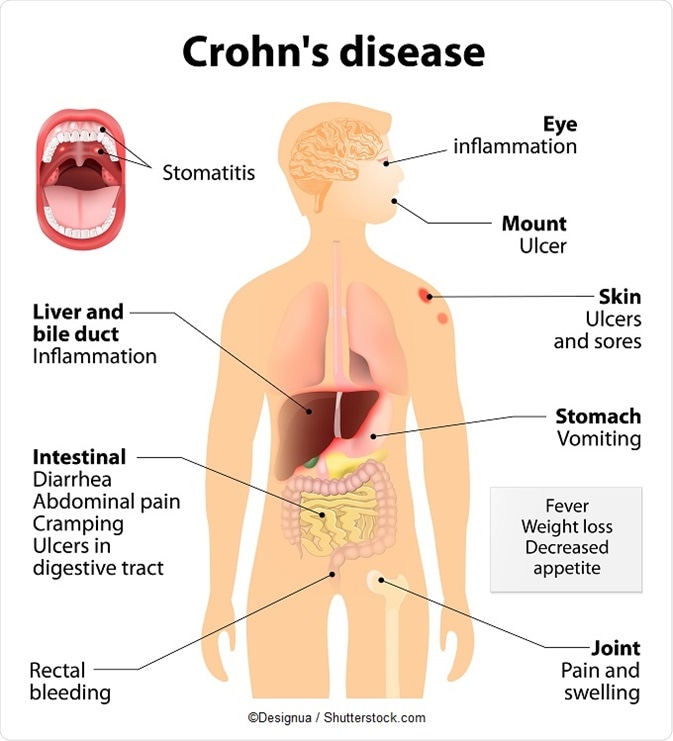Discover the surprising connection between Crohn’s disease and mental health – how this condition impacts both body and mind.
Table of Contents
- Introduction to Crohn’s Disease
- Understanding Inflammation in Crohn’s Disease
- The Challenge of Chronic Pain
- The Emotional Side of Crohn’s Disease
- How Stress Fits into the Picture
- Crohn’s and Everyday Life
- Managing Mental Health with Crohn’s Disease
- Support Systems are Important
- Conclusion: Remember, You’re Not Alone
- FAQs about Crohn’s Disease and Mental Health
Introduction to Crohn’s Disease
Crohn’s disease is an autoimmune disorder that affects the digestive health of those who have it. It can be a challenging condition to live with, causing inflammation and discomfort in the digestive system.
What is Crohn’s Disease?
Crohn’s disease is a condition that causes inflammation in the digestive system. This inflammation can lead to various symptoms such as abdominal pain, diarrhea, fatigue, and weight loss. Unlike some other digestive disorders, Crohn’s disease can affect any part of the digestive tract, from the mouth to the anus.
Understanding Inflammation in Crohn’s Disease
When we talk about inflammation in Crohn’s disease, we are referring to a process that happens in the body that can cause a lot of trouble for those who have this condition. Let’s break down what inflammation is and why it’s so important to understand when dealing with Crohn’s disease.
What Does Inflammation Do?
Inflammation is like a superhero power inside our bodies. When we get a cut or catch a cold, inflammation rushes in to protect us. But in Crohn’s disease, this process goes a bit haywire. The immune system, which is supposed to fight off germs, starts attacking the digestive system, causing redness, swelling, and pain. This inflammation can damage the intestines and make it hard for them to work properly, leading to symptoms like stomach pain, diarrhea, and fatigue.
The Challenge of Chronic Pain
Living with Crohn’s disease can be tough, especially when chronic pain becomes a daily companion. Imagine feeling constant discomfort in your belly that never seems to go away. This is what many people with Crohn’s disease experience.

Image courtesy of www.mycrohnsandcolitisteam.com via Google Images
Pain and Play
Due to the persistent pain caused by Crohn’s disease, engaging in physical activities or sports can become challenging. Simple tasks like running, jumping, or even sitting still may be uncomfortable or even painful. It’s like having a rock in your shoe that just won’t go away, making it hard to enjoy the fun activities you love.
The Emotional Side of Crohn’s Disease
Living with Crohn’s disease can be tough not just physically, but emotionally as well. When someone has a chronic condition like Crohn’s disease, it can really impact how they feel inside.
Feeling Blue Because of Crohn’s
Imagine feeling sick a lot of the time. It can make you feel sad or worried. When your body is fighting inflammation and causing pain, it’s normal for your mood to take a hit too. It’s okay to feel these emotions, but it’s important to talk about them and get support.
How Stress Fits into the Picture
Stress is like those dark storm clouds that can make your stomach feel like it’s filled with butterflies flying around in a frenzy. For someone dealing with Crohn’s disease, stress can play a big part in how they feel both physically and emotionally.

Image courtesy of cdhf.ca via Google Images
Stress and the Stomach
When we feel worried, anxious, or stressed, our bodies can sometimes react by making our stomachs hurt. Imagine your tummy as a delicate flower that needs gentle care; stress can be like a strong wind that blows and shakes that flower, causing it to wilt and feel uncomfortable. This can be especially challenging for someone with Crohn’s disease, as stress can sometimes trigger flare-ups and make their symptoms worse. So, it’s important to find ways to manage stress and keep that flower in your tummy feeling calm and happy.
Crohn’s and Everyday Life
Living with Crohn’s disease can present challenges in everyday life. From managing symptoms to navigating school and social activities, individuals with Crohn’s may face unique obstacles. Here, we delve into how this condition can impact daily routines.
| Reasons Why Crohn’s Takes a Toll On Mental Health | |
|---|---|
| Cause | Impact on Mental Health |
| Chronic Illness | Constant pain, fatigue, and discomfort can lead to depression and anxiety. |
| Isolation | Due to frequent flare-ups and bathroom trips, individuals may feel isolated and lonely. |
| Diet Restrictions | Limitations on what foods can be eaten can lead to frustration and poor mental well-being. |
| Medication Side Effects | Side effects such as mood swings, insomnia, and weight fluctuations can negatively impact mental health. |
| Uncertainty | Lack of control over disease progression and potential complications can cause anxiety and stress. |
School Days with Crohn’s
For students with Crohn’s disease, a typical school day may require extra planning and consideration. Symptoms like abdominal pain, fatigue, or frequent bathroom trips can disrupt classroom focus and participation. It’s essential for these students to communicate their needs with teachers and school staff to ensure a supportive academic environment.
Additionally, Crohn’s symptoms may affect participation in physical activities or recess. The fear of having a flare-up or feeling unwell during sports or games can be a significant concern for students with this condition. Finding ways to balance activity levels with symptom management is crucial for a fulfilling school experience.
Despite these challenges, with proper support and understanding from teachers, peers, and healthcare providers, students with Crohn’s disease can thrive academically and socially. Open communication, advocacy for individual needs, and proactive symptom management are key components in navigating school life with this chronic condition.
Managing Mental Health with Crohn’s Disease
Living with Crohn’s disease can be challenging not only physically but also emotionally. It’s important to take care of your mental health while managing this autoimmune disorder that affects your digestive system.

Image courtesy of www.healthline.com via Google Images
Tips for Staying Cheerful
Here are some simple suggestions to help keep your mind happy and healthy while dealing with Crohn’s:
- Talk with friends or family members about how you’re feeling. Sharing your thoughts can make you feel better.
- Enjoy hobbies and activities that bring you joy. Whether it’s drawing, playing music, or playing video games, find something you love to do.
- Take time to relax and unwind. Whether it’s watching your favorite show, reading a book, or going for a walk, find ways to destress.
Remember, it’s okay to have bad days and feel upset or worried about your condition. But by taking care of your mental health and finding things that make you happy, you can better cope with the challenges of Crohn’s disease.
Support Systems are Important
Living with Crohn’s disease and managing its impact on mental health can be a tough journey. That’s why having support systems in place is crucial. Support from friends, family, and healthcare providers can make a significant difference in how someone with Crohn’s feels both emotionally and physically.
Who Can Help?
Friends and family members can offer a listening ear, a helping hand, or simply be there to provide comfort on the tough days. Parents, siblings, and close friends can offer emotional support and help with daily tasks when needed.
Healthcare providers like doctors, nurses, and counselors can provide valuable medical and mental health assistance. They can offer guidance on managing symptoms, prescribe treatments, and provide therapy to help cope with the emotional toll of living with a chronic condition like Crohn’s disease.
Support groups comprised of individuals who also have Crohn’s disease can offer a unique level of understanding and empathy. These groups allow individuals to share experiences, learn from one another, and feel less isolated in their journey.
Remember, you’re not alone in dealing with Crohn’s disease. Lean on your support network, reach out for help when needed, and know that there are people who care about your well-being.
Conclusion: Remember, You’re Not Alone
As we wrap up our discussion about Crohn’s disease and its impact on mental health, it’s essential to remember that you’re not alone in facing these challenges. Many children and adults around the world deal with the daily struggles of living with a chronic condition like Crohn’s disease. It’s okay to feel upset, frustrated, or anxious at times, but always remember that there is a big community out there to offer support and understanding.

Image courtesy of www.news-medical.net via Google Images
Whether it’s finding comfort in talking to friends, seeking guidance from family members, or getting professional help from counselors or support groups, there are people who care about your well-being and want to see you thrive despite the obstacles you may face. Remember, reaching out for help is a sign of strength, not weakness.
Despite the challenges that Crohn’s disease may bring, there are still plenty of ways to find joy and happiness in life. Pursue activities that bring you pleasure, engage in hobbies that you love, and take time to relax and unwind. Remember that self-care is important, and taking care of your mental health is just as crucial as managing your physical symptoms.
So, keep your head up, stay positive, and know that there is a vast network of support waiting to walk alongside you on your journey with Crohn’s disease. You are resilient, you are strong, and you are never alone in this fight. Together, we can navigate the challenges and celebrate the victories that come with living a full and fulfilling life despite Crohn’s disease.
FAQs about Crohn’s Disease and Mental Health
Why does Crohn’s disease make people feel stressed or sad?
Crohn’s disease can cause people to feel stressed or sad because the physical discomfort it brings can be overwhelming. When your stomach hurts all the time, or you’re always feeling sick, it’s normal to start feeling down. Just as our bodies can feel pain, they can also affect how we feel emotionally too.
Can you still have fun if you have Crohn’s disease?
Absolutely! Even with Crohn’s disease, there are still plenty of ways to have fun and enjoy life. You might need to make some adjustments to accommodate your symptoms, but that doesn’t mean you can’t have a good time. Whether it’s spending time with friends, playing games, or engaging in hobbies you love, there are always opportunities to experience joy and excitement.





